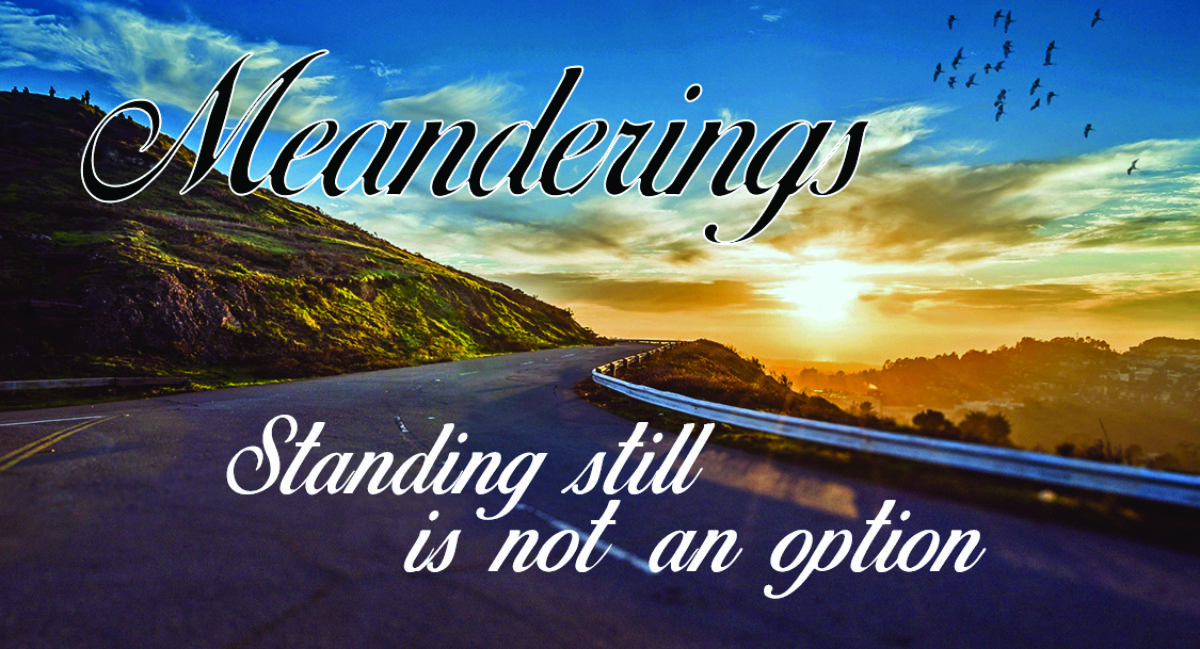Consider these conversations. We are driving home from a double day date with Lifeliner Jackie and her Bob when my Bert says: “Are we going to Canada”? No use trying to explain, just enter his world and answer: “Yes, we are.” I have not finished saying those three words when Jackie’s Bob pipes up with: “No, we are not going to Canada we are going across the bridge to Winnipeg.” His wife and I share shrugs and looks as I distract with: “Lunch was very good today.” The conversation turns to lunch. Good.
“Bert, come and watch this. Our Dutch son has sent us a video. It is funny.” We watch together and laugh.
“Where is he?” Bert asks.
“He is in Amsterdam, in Holland.”
“No, it’s The Netherlands.” That’s my Bert. He makes this correction as always. “Tell him to come for a visit, or maybe we can go to see him tomorrow.” This is an easy one to deflect as by tomorrow, actually within the next five minutes or less he would have forgotten the whole conversation and video, so I say: “That’s a good idea. Maybe we can do that.”
“Sweet P, are we going to Europe tomorrow?” Without thinking I answer: “No.”
“Why not?’
Fast thinking: “Because we have two doctors’ appointments and we cannot travel until we get those done.” The appointments are real.
“Oh, OK. We can go to England tomorrow then.”
“Yes, we will do that.” My Bert smiles. All is right in his world again. Gosh, you lie so easily, I tell myself.
Yes, caregivers lie. It is a skill we develop over time and it is a critical one for both your loved one and for you. You get more adept at doing it but every care giver will tell you it is not an easy one to perfect.
Imagine a child lying to a parent. The same parent who taught that lying was not to be tolerated. My Bert and I made a pact that we would not lie to each other. Now I lie almost every day. There is still a frisson of guilt each time but the alternative is so much worse. If I were to begin explaining that going to England tomorrow is not feasible it would only result in frustration and anxiety leading to anger and distress.
Caregivers live in two worlds and become adept in Alzheimer’s communication. At first it is hit or miss as you are being logical and Alzheimer’s world is illogical. Why argue? Why be angry? It does not matter to your loved one. You only make yourself frustrated and in a minute or two that anger is festering only in you as your loved one has forgotten all. I find the ‘tear out your hair’ and ‘banging your head against the wall’ moments are beginning to lessen as I advance in Alzheimer’s University.
Of course those moments will continue to occur. You are trying to communicate with someone who cannot reason. You can no longer begin a sentence with “remember”. You cannot say:”I just asked you to” or, “I just told you!” You can say that till the cows come home, means absolutely nothing.
Preparing dinner is wonderful. Bert loves to help and seeing I am somewhat lacking in the culinary arts he was the cook for most of our marriage. Now that my Bert is my toddler his kitchen duties are limited.
“What are you doing? Can I help?”
“No, darling this will not take long.”
“You never let me help anymore.”
“OK. You can help. Please put that in the garbage for me.” I point to the vegetable peelings. He does it.
“What are you doing? Can I help?”
This goes on enumerable times as I get him to set the table, one utensil at a time, one knife, fork, spoon glass, and one plate while I get on with any preparation I have to do. Every time my Bert asks to help, I give him one more item. It is only the two of us but by the time the garbage is in the bin and the table set, whatever is in the oven is ready. If I need more time I will tell him to go wash his hands. If I am lucky he will wander around looking for the bathroom, becomes distracted when he sees his chair and sits because he has forgotten what he was going to do.
Alzheimer’s communication is a lot of distraction, deflection and accommodation. You develop the skill for therapeutic lying. Here is what makes it bearable and easier as time goes by. You lie to protect, to preserve dignity, to console, to reassure, to show respect. You lie because you care.
The Meander: To my fellow caregivers. We learn to live in two worlds. We learn so many coping skills as we travel this journey. Learning to lie is just another of those skills. Always remember we lie because we love.


Love this Paula, Just love it.
Your words ring true.
I face this battle every single day. Trying to figure out what to say, how to deflect, how to distract. Running out of options sometimes.
But you give me hope and strength and comfort. For that I thank you.
What a lovely comment, Stephanie. Thank you. The best thing about connecting with those going through the same journey is that we share and learn from each other. I have learnt so much from my Lifeliners. I am happy to share. That is how we can continue on the journey. We know we are not alone.
Another great meander, Paula. All so well described. All, oh so true. Larry.
Thanks, Larry. You do know.